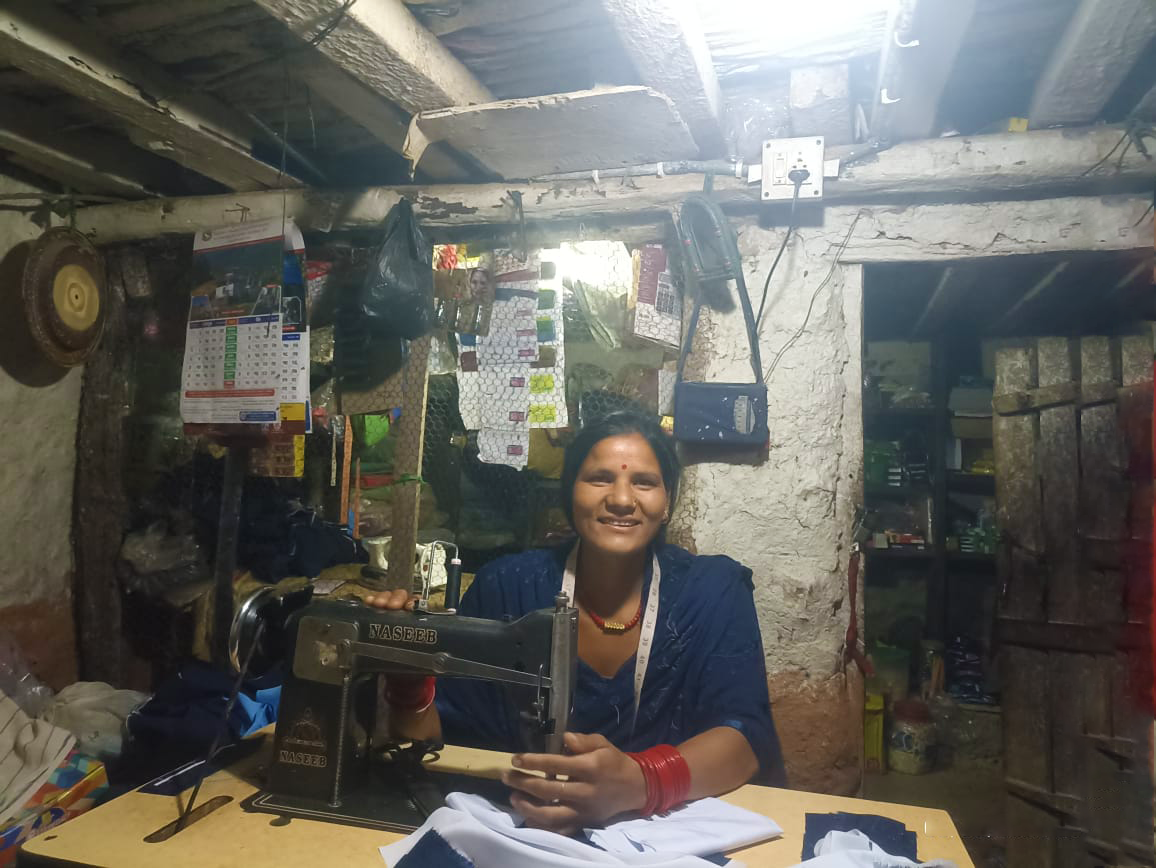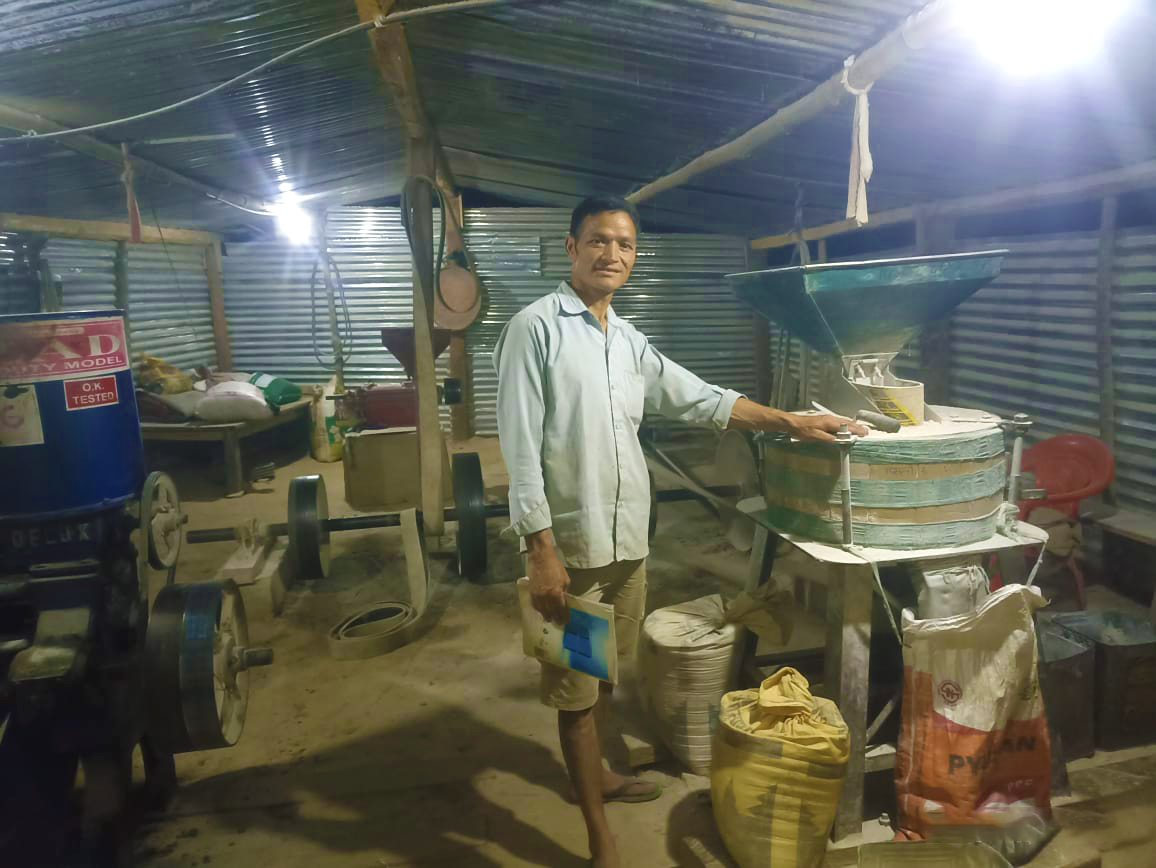
Residents of Bogtan Fudsil Rural Municipality-2 Garaju in Doti district endured years of living in darkness due to the absence of electricity. However, the lives of the 83 families in the village took a significant turn when they were finally able to illuminate their homes using a solar mini-grid.
With financial support from Provincial and local governments and technical support of REEEP-GREEN, (a project implemented with support GIZ and cofinanced by the European Union), the long-cherished dreams of the community became a reality after the completion of the Solar Mini Grid Project.
Bharat Bahadur Chand, the chief administrative officer of the village, shared that it was challenging to access electricity from the central transmission line, and will probably take many more years as the village is situated in a very remote part of the country. In response, a solar mini-grid was set up to provide much-needed light and cater to their basic energy needs.
With access to electricity, the residents are able to engage in their regular activities like studying, completing daily chores even after sunset. Some have already started their own income generating activities. They also have access to more communication mediums as they can use radios and television and charge their mobile phones.

Nar Bahadur Bohra, a local resident, expresses relief over improved safety at night, as incidents of theft have decreased significantly. Furthermore, the reduction of respiratory problems among women and children, caused by indoor smoke from burning wood for light, marks a significant health improvement. The burden of collecting firewood from forests for lighting purposes has also been lifted.
The rural municipality has many development plans for the community following the installation of solar minigrid. One such initiative is the establishment of a 10-horsepower grinding mill in the village to alleviate the workload of women. This new grinding mill located at the central area serves around 100 households including a few from neighboring villages. Previously women had to grind flours manually in their homes or for large quantities, visit a traditional water mill (Ghattas) that was quite far.

Additionally, the rural municipality is also initiating entrepreneurship training and capital provision to enable youths to establish small businesses and industries locally, thus curbing the trend of migration to neighboring countries for employment. With the electrification and these initiatives and more, the economic situation of the people in the rural municipality is expected to improve.
REEEP-GREEN is a technical cooperation project agreed between the Government of Nepal (GoN) and the Federal Republic of Germany. With support of GIZ on behalf of the German Federal Ministry of Economic Cooperation and Development (BMZ) and co-financed by the EU, REEEP/GREEN is executed by the Ministry of Energy, Water Resources and Irrigation and sets out improve the preconditions for planning and implementation of measures for the promotion of renewable energies and the efficient use of energy in Nepal.

